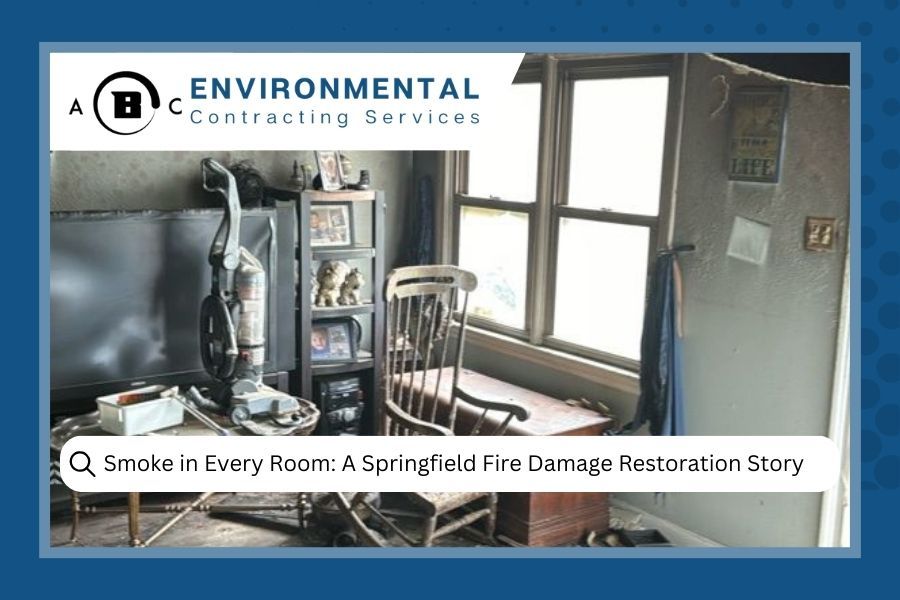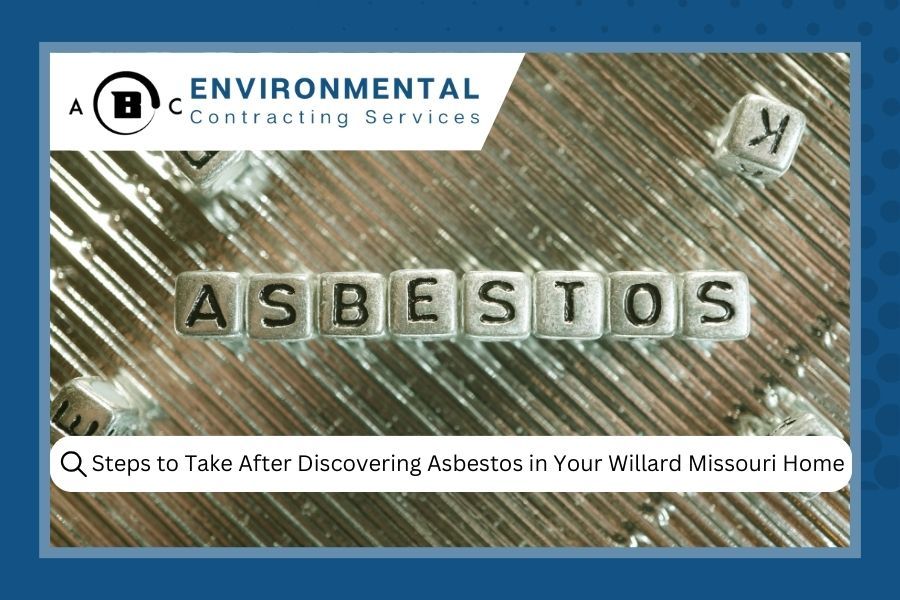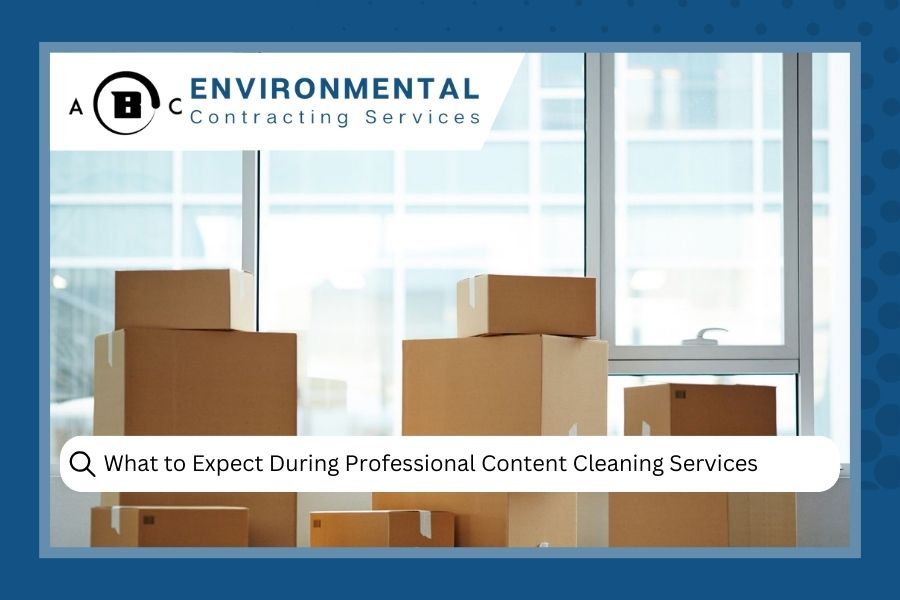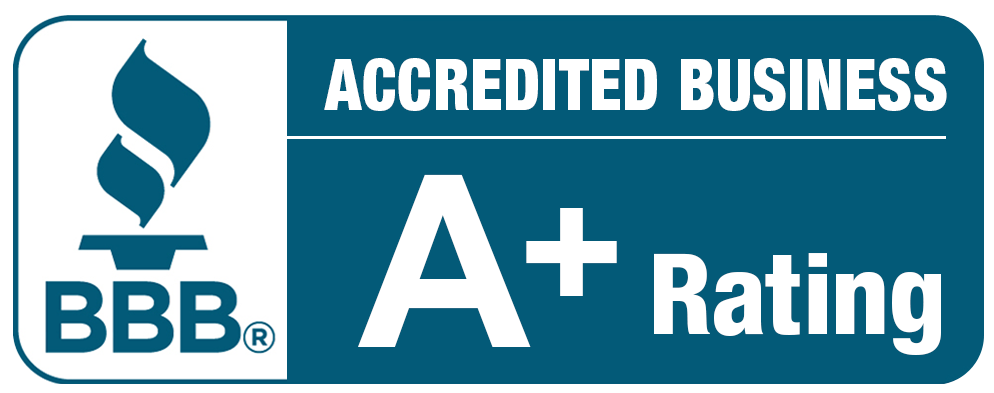
Can Black Mold Make You Sick? Health Risks for Ozark Residents
Jump To:
- What Exactly Is Black Mold?
- Health Risks: The Real Talk
- Who's Most at Risk in Missouri Homes?
- Long-Term Health Consequences
- Ozark-Specific Mold Challenges
- Red Flags: When to Take Action
- What NOT to Do
- Professional Assessment and Removal
- Prevention Tips
- When DIY Isn't Enough
- The Bottom Line
- Frequently Asked Questions
You walk into your basement after last week's storm, and there it is: that dark, fuzzy growth creeping up the corner wall. Your stomach drops because you've heard the horror stories about black mold. But can it really make you sick?
Here in the Ozarks, where our humid summers and occasional flooding create perfect conditions for mold growth, this isn't just a hypothetical question. At ABC Environmental Contracting Services in Springfield, we've seen firsthand how black mold affects families throughout Springfield, Republic, and surrounding communities. Let's break down what you need to know about this unwelcome house guest.
Worried about potential mold in your home? Our team at ABC Environmental Contracting Services in Springfield provides professional mold remediation services throughout the Missouri Ozarks region.
What Exactly Is Black Mold?
When people say "black mold," they're usually talking about Stachybotrys chartarum, though several mold species can appear black or dark green. This particular troublemaker loves moisture-rich environments and feeds on materials containing cellulose: think drywall, wood, paper, and carpet backing.

Here's the thing: not all black-colored mold is the infamous Stachybotrys. But honestly? Any mold growing in your living space deserves attention, regardless of its scientific name or color.
Health Risks: The Real Talk About Mold Exposure
Let's get straight to your biggest concern. Yes, black mold can absolutely make you sick. The severity depends on several factors: how long you've been exposed, how much mold is present, and your individual sensitivity.
Black Mold Health Risk Levels for Missouri Residents
High Risk
Children under 12
Pregnant women
Immunocompromised individuals
Medium Risk
Adults with asthma
Allergy sufferers
Elderly residents
Lower Risk
Healthy adults
Limited exposure
Good ventilation
Immediate Symptoms You Might Experience
Most people notice respiratory issues first:
- Persistent coughing or throat irritation
- Sneezing fits that seem to come out of nowhere
- Stuffy or runny nose
- Itchy, watery eyes
- Skin rashes or irritation
If you're thinking, "That sounds like my allergies," you're not wrong. Mold exposure often mimics seasonal allergies, which is why many folks in our area initially brush off symptoms.
Who's Most at Risk in Missouri Homes?
Need Immediate Help with Mold Concerns?
Don't wait for symptoms to worsen. Our emergency team is available 24/7.
Call ABC Environmental: (417) 302-3010Certain groups face higher risks from mold exposure:
Children and Infants
Kids' developing respiratory systems make them particularly vulnerable. We've worked with families where children experienced chronic coughing or frequent respiratory infections that cleared up after mold remediation.
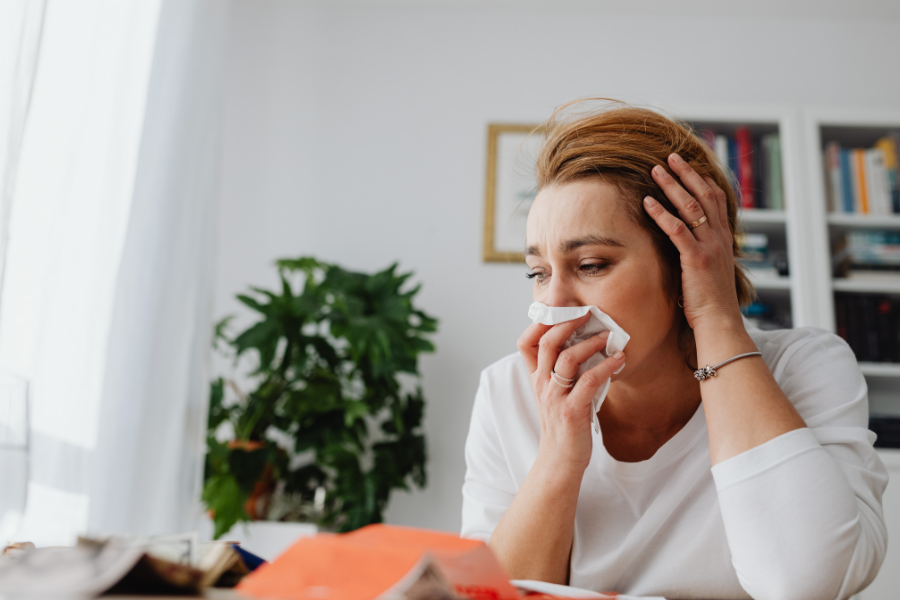
Adults with Asthma or Allergies
If you already struggle with breathing issues, mold can trigger more severe reactions. Some of our clients report their inhalers weren't helping until we addressed their home's mold problem.
Individuals with Compromised Immune Systems
Anyone with conditions affecting their immune response, including elderly residents, cancer patients, or those taking immunosuppressive medications, should take mold exposure seriously.
Long-Term Health Consequences
While acute symptoms are concerning enough, prolonged exposure can lead to more serious issues:
- Chronic respiratory conditions
- Persistent fatigue that doesn't improve with rest
- Cognitive issues like difficulty concentrating (sometimes called "brain fog")
- Recurring sinus infections
Some studies suggest connections between long-term mold exposure and more severe health problems. The World Health Organization recognizes dampness and mold as significant health concerns that can affect respiratory systems and overall wellbeing.
Ozark-Specific Mold Challenges
Living in Missouri's Ozark region presents unique mold risks. Our climate creates a perfect storm of conditions:
| Challenge | Missouri Ozarks Impact | Mold Risk Level |
|---|---|---|
| Summer Humidity | Often exceeds 70% relative humidity | High |
| Spring Storms | Frequent roof leaks and flooding | High |
| Older Homes | Poor vapor barriers in basements | Medium |
| Crawl Spaces | Common in Ozark construction | Medium |
| Winter Freezing | Pipe bursts leading to water damage | Medium |
Red Flags: When to Take Action
Don't wait for a laboratory analysis to take mold seriously. Here are clear indicators you need professional help:
Visual Signs
- Black, green, or brown patches on walls, ceilings, or floors
- Discoloration around windows, pipes, or areas with previous water damage
- Peeling paint or wallpaper that wasn't damaged before
Smell Test
That musty, earthy odor isn't just unpleasant; it's often your first warning sign. If you notice persistent odors in basements, bathrooms, or areas that have experienced water damage, investigate further.
Health Symptoms
When multiple family members experience similar respiratory or allergy-like symptoms that improve when they leave the house, mold could be the culprit.
What NOT to Do If You Find Black Mold
Before we talk solutions, let's cover some dangerous mistakes we see homeowners make:
- Don't try scrubbing it away with household cleaners. This can actually spread spores throughout your home.
- Avoid using bleach on porous surfaces. While bleach kills surface mold on non-porous materials, it can't penetrate wood or drywall to eliminate root systems.
- Never ignore small patches, thinking they're harmless. What you see is often just the tip of the iceberg.
Professional Mold Assessment and Removal
Here's where we get practical. At ABC Environmental Contracting Services in Springfield, we've helped hundreds of Ozark families deal with mold issues safely and effectively. Our process includes:
Comprehensive Inspection: We don't just look at obvious problem areas. Our team checks behind walls, in crawl spaces, and other hidden locations where mold loves to hide.
Proper Containment: Before removal begins, we establish containment barriers to prevent spores from spreading to unaffected areas of your home.
Safe Removal Techniques: Using professional-grade equipment and following industry standards, we eliminate mold without putting your family at additional risk.
Moisture Control: The most important step? Fixing the underlying moisture problem that allowed mold to grow in the first place.
Learn more about identifying these issues in our guide on 8 common causes of mold and understand the differences between how dangerous is mold in your home.
Prevention: Your Best Defense Against Future Mold
The good news? With proper precautions, you can significantly reduce your risk of future mold problems:
Control Indoor Humidity: Invest in a good dehumidifier for basements and use exhaust fans in bathrooms and kitchens. The EPA recommends keeping indoor humidity between 30-50% to prevent mold growth in homes.
Address Water Issues Immediately: Whether it's a leaky pipe or roof damage from our infamous Ozark storms, quick action prevents small problems from becoming big ones.
Improve Ventilation: Ensure your home has adequate airflow, especially in moisture-prone areas.
Regular Inspections: Schedule periodic checks of basements, crawl spaces, and areas around plumbing fixtures.
For more detailed prevention strategies, check out our comprehensive mold prevention tips for your home.
When DIY Isn't Enough
We're all for homeowners taking care of minor issues, but mold remediation often requires professional intervention. If the affected area is larger than 10 square feet, if you're dealing with contaminated HVAC systems, or if anyone in your household has respiratory conditions, it's time to call in the experts.
Get Professional Mold AssessmentReady to take action? Contact our team for a free estimate on mold assessment and removal services.
The Bottom Line for Ozark Families
Black mold can absolutely make you sick, and the health risks are real, especially for children, elderly family members, and anyone with existing respiratory conditions. But here's the reassuring part: with proper identification, safe removal, and preventive measures, you can protect your family's health and your home's value.
Don't let fear paralyze you, and don't try to tackle significant mold problems alone. As a veteran-owned, family business with over 20 years of experience serving the Springfield and Branson areas, ABC Environmental Contracting Services in Springfield understands the unique challenges Missouri homeowners face. We're here to help with everything from initial assessments to complete remediation, and we also provide comprehensive water damage restoration services since water damage is often the root cause of mold problems.
Remember, addressing mold problems quickly isn't just about protecting your property; it's about protecting the people you love most.
Frequently Asked Questions
Can black mold cause serious health problems for children living in Missouri's humid climate?
Yes, children are particularly vulnerable to black mold exposure due to their developing respiratory systems. In Missouri's humid climate, children may experience chronic coughing, frequent respiratory infections, skin rashes, and worsened asthma symptoms. ABC Environmental Contracting Services in Springfield has worked with many local families where children's health improved significantly after professional mold remediation.
How long does it take for black mold to grow after water damage in Ozark region basements?
In Missouri's humid conditions, black mold can begin growing within 24-48 hours after water damage occurs. Basements in the Ozarks are particularly susceptible due to poor ventilation and higher moisture levels. If you've experienced flooding, pipe leaks, or storm damage, it's crucial to contact ABC Environmental Contracting Services in Springfield within the first 24 hours to prevent mold development.
What makes black mold more dangerous than other types of mold found in Springfield area homes?
Black mold (Stachybotrys chartarum) produces mycotoxins that can cause more severe health effects than common household molds, including neurological symptoms, severe respiratory issues, and immune system suppression. While all mold should be addressed professionally, black mold requires specialized containment and removal procedures that ABC Environmental Contracting Services in Springfield follows to protect your family's safety.
Should I leave my Springfield area home if I discover black mold growing after recent storms?
If you have extensive black mold growth (larger than 10 square feet), anyone in your household has respiratory conditions, or multiple family members are experiencing symptoms, consider temporarily relocating until professional remediation is complete. ABC Environmental Contracting Services in Springfield provides emergency assessment services to help you make informed decisions about your family's immediate safety and develop a remediation plan.

